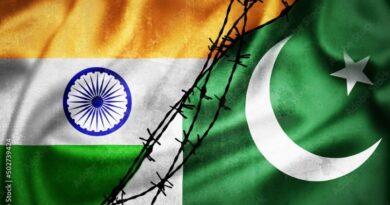
Erdogan wins 3rd term as Turkish President
Incumbent Turkish President Recep Tayyip Erdogan has secured a victory in a historic runoff election. This will be his third term as Turkey’s President. He has won despite people’s grievances being on the rise as well as his mismanagement of the response to the earthquake that hit Turkey earlier this year that registered 7.8 on the Richter scale and killed ~60k people as well as his dismantling of decades old democratic institutions. Ahmet Yener, the head of Turkey’s Supreme Election Council, announced that with 99.4% votes counted, 52.14% had gone for Erdogan and 47.86% for his challenger Kemal Kilicdaroglu. The initial voting could not produce a clear winner as no one secured over 50% votes.
While Erdogan’s campaign was based on projecting him as a potential world leader who would take Turkey to new heights mixed with Islamic religious rhetoric, his opponent ran on restoring Turkey’s democratic institutions back to the Parliamentary form of Government as it was prior to 2017.
Kilicdaroglu also promised to end corruption, fix the economy, and bring back independence to the judiciary. Kilicdaroglu’s election platform also included nationalist and anti-immigrant rhetoric. He agenda included plans to secure Turkey’s borders and send the nearly 4 million Syrian refugees in Turkey back to Syria. He eventually failed to match the charisma and election assets (such as state run media) of Erdogan but to his credit, gave Erdogan a run for his money. This was perhaps the toughest election for Erdogan.
Erdogan’s election is not great news for the US as Turkey is a NATO member and has not only opposed sanctions on Russia but also maintained close ties with the Kremlin. Turkey under Erdogan has also been the stick in the mud when it comes to including Sweden into NATO alliance. Turkey accuses Sweden of harboring ‘militants’ from Kurdistan Workers Party that fought the Turkish state in 1984.
This election also underscores that Turkey’s relationship with India will continue to be on a roller-coaster. Under Erdogan, the centuries old Indo-Turkish relationship is on the steep downward spiral. Erdogan’s gripe against India centers on the latter’s treatment of its Muslim minority population and New Delhi’s control over the disputed territory of Kashmir which Indians hold to be integral part of their country.
The uncertainty of Indo-Turkish relationship is likely to continue although there are no major issues between the countries. This is owing to the fact that Turkey sees this relationship through lens of a third country – Pakistan, which has come to be known as a terrorist state by most of the world. Turkey cannot afford to ignore India due to sheer economics as it tries to find alternative to China. In addition, investments from India will help the Turkish economy.
It is difficult to assess the reason for Erdogan’s posturing on the issue of Kashmir where he is taking Pakistan’s side. It seems to feed the religious Islamic rhetoric to his advantage. However, this is a short sightedness of Turkey to indulge in such adventurism. Their alliance with a bankrupt terrorist state can only mean more isolation and economic downturn in the long run.
It is yet to be seen what Erdogan’s next term will bring, however, it is highly likely that things will not change and the country will continue to dismantle its democratic institutions and move towards an autocratic dictatorship. It is entirely possible that Turkey plans to take on the role of leadership of Islamic world.



